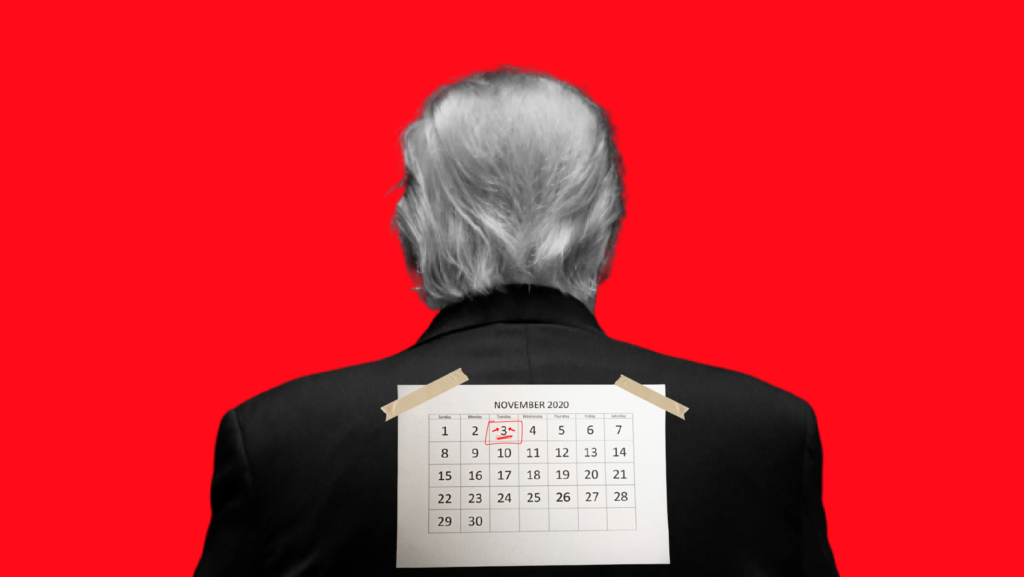No, Trump Cannot Move the General Election

We are three months into a major presidential election year and in the middle of a global pandemic. Not surprisingly, I am getting a lot of questions — from family, friends, reporters, political consultants, even from members of Congress — about the impact that all of this may have on our elections. But there is one question that I get asked more than any other: Is there any way — at all — that Trump can legally cancel or postpone the November general election?
The answer is clearly no.
The president has no legal authority to change the date of federal elections — period. And though one court — one time — found that a congressional election, in part of one state, could be postponed by a few weeks, the circumstances under which the court found that was warranted does not apply in 2020 and could never apply to the office of the president.
With respect to congressional elections, the U.S. Constitution gives states the power to set the “times, places and manner” of elections, subject to Congress’s ultimate authority to “make or alter” state regulations. This means that while states have the power to enact rules around how elections for federal office are run, ultimately Congress can overrule the states. Congress has used this power in a number of ways, including requiring states to ensure that military and overseas voters receive mail-in ballots in time for them to be able to vote.
Most importantly, more than 100 years ago, Congress set by federal statute the date on which congressional elections are to be held as the Tuesday following the first Monday in November. Neither the president nor a state can alter or postpone that date and only once has a court done so.
The only time a congressional general election was postponed was in 1982, when a federal district court in Washington, D.C. struck down two Georgia congressional districts under Section 5 of the Voting Rights Act (VRA). With the election nearing, the court postponed the general election to later in November for those districts. Among its reasons was that Section 5 of the VRA, like the Election Day law, was an act of Congress — and a more recent one. To read the two federal laws in harmony, the court found that the postponement was consistent with federal law, policy, and the U.S. Constitution. Sadly, since that ruling, the U.S. Supreme Court struck down the coverage formula that is used for Section 5 preclearance. Thus, even that limited historical exception could not happen today.
With respect to the presidential general election, things are even clearer. The Constitution provides that “the Congress may determine the Time of chusing the Electors, and the Day on which they shall give their votes; which Day shall be the same throughout the United States.” In 1845, Congress enacted a statute to exercise its power to set a uniform date for “choosing” electors: “The electors of President and Vice President shall be appointed, in each State, on the Tuesday next after the first Monday in November, in every fourth year succeeding every election of a President and Vice President.”
This year that day is Nov. 3: no statute provides authority for postponing or rescheduling the “time of choosing the electors” determined by Congress — that is, for postponing an election past Nov. 3, 2020.
What if Trump declared some type of new national emergency? National emergency powers do not include deciding when we vote.
So, the president has no power to change the election on his own. But, what if Congress decides to move the election? To do so, Congress would have to rewrite existing federal law and a majority of both the House and Senate would have to agree before getting the rewrite on Trump’s desk. Even then, this would only push the election back two months, as the Constitution says that the president can only “hold his Office during the term of four years.” At noon on Jan. 20, 2021, Trump’s four year term would expire — with or without an election.
Trump alone cannot move the November election, and it is extremely unlikely that Congress will agree to rewrite federal law to change the date. However, that doesn’t mean we can relax our fears about the ways in which COVID-19 may impact the election — and the people’s ability to choose their elected officials in November — just yet.
States have an enormous amount of control over how elections are run, including setting rules on voter registration, poll site locations and hours, voter ID requirements and — the most popular topic lately — vote by mail options.
We have to pay close attention to how the states will make changes to voting over the next few months. The coronavirus stimulus package set only $400 million for the states to safeguard elections — and provided no restrictions on how to use it. While states must consider expanding vote by mail, they must be mindful of the potential for voter disenfranchisement. All of this on top of decades of bad voting laws we are already challenging in court.
This year will be a turning point in how we hold elections. We must ensure that all eligible citizens are given a fair opportunity to cast their ballot and have that vote count.